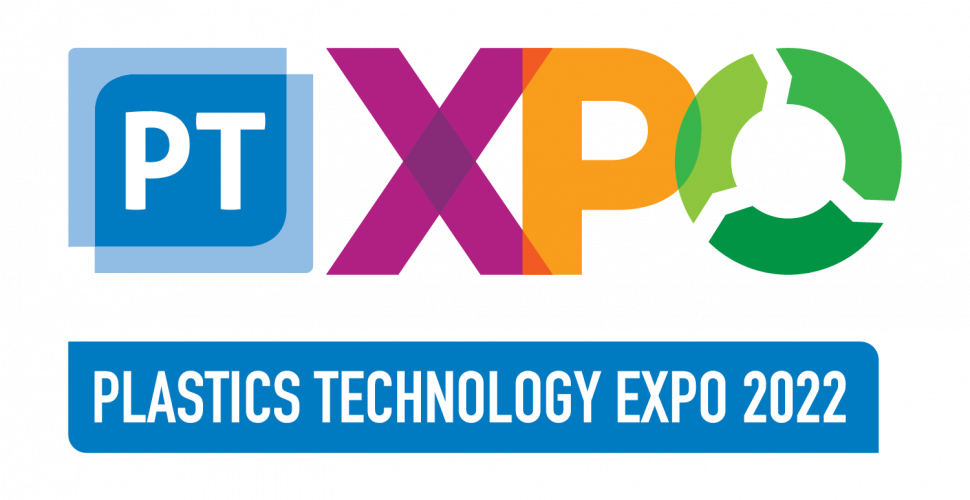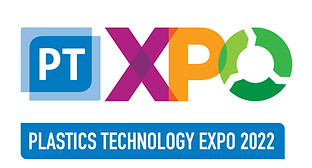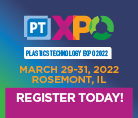
Plastics and Mold Making in an Era of Sustainability
Published Feb 28, 2022 | Posted in Manufacturing, News, Technology
Plastics and Mold Making are big business.
They are also an integral part of our everyday life. Look around, and it becomes more obvious how much plastics of all kinds play a role in what we do, what we use, and how we live.
Plastic materials are vital to so many of the products we consume ranging from medical devices to plastic bins, cell phones, computers, and other commercial products—certainly in many interior and exterior car parts.
Plastic injection molding is a critical part of the supply chain, and mold making is a critical part of injection molding. In fact, mold making is considered the genesis of manufacturing because you cannot make plastic products without some type of mold to shape them. Every job in mold making creates two to three more jobs up the supply chain. Amazing but true. That’s how critical mold manufacturing is to our world.
Despite the dominant role played in everyday life, plastic is also a controversial subject with those concerned about the environment, and as such our industry must step up its efforts to educate consumers and lead discussions on recycling and sustainability. Where can we get this rolling? At a plastics show, of course!
Inaugural PTXPO Offers ‘Big Picture’ of Plastics and Mold Making
The inaugural Plastics Technology Expo (PTXPO) is just around the corner and Cavalier Tool looks forward to exhibiting. This is a new twist on the Gardner Business Media trade event protocol. For many years, Gardner has produced and hosted the popular Amerimold Expo at which Cavalier has become a regular participant, plus the publisher also hosts several other top trade events like Top Shops, Molding, and Composites that cater to the metalworking and plastics manufacturing industries. PTXPO will take place March 29-31 at the Donald E. Stephens Convention Center in Rosemont, Illinois. It should not be missed!

As Christina Fuges, editorial director of MoldMaking Technology Magazine, explained in a recent blog, “With the Plastics Technology Expo, we are expanding from Amerimold to embrace the entire plastics processing market. We are not moving away from mold manufacturing; instead, we are bringing that marketplace more into focus and putting the technologies to design, build and maintain molds next to the people who need it most: injection molders.”

Christina Fuges, Editorial Director, MoldMaking Technology Magazine
It has also been said that PTXPO is like having a miniature version of the National Plastics Expo (NPE) in an off year, and that says a lot about what attendees and participants stand to gain by being there.
Cavalier’s booth, which is #1013, will be in the Moldmaking Pavilion where we will be promoting our mold manufacturing know-how and the speed at which we can deliver top-quality, medium- to large-size injection and compression molds. As with the Amerimold Expo, this pavilion features everything for mold making from design to build to maintenance. But PTXPO is not just a show to exhibit at; it’s also a show designed for the mold maker to explore, to network, and to learn.
Cavalier President Brian Bendig states, “Cavalier travels the world and scours new technologies that can advance mold making and we bring it back to see how it might affect us. How would that work in our environment? We then partner with people and together we grow.” Trade events like PTXPO are prime for exploration in all aspects of plastics manufacturing. Cavalier Tool has an enormous customer base and the diversification of tools being designed sets them up well for future growth.
Other pavilions at PTXPO include:
- Injection and Blow Molding Pavilion. See molding machines of all sizes and types in action including hydraulic, electric and smart machines.
- 3D Printing for Plastics Pavilion. 3D printing is now widely accepted in the mold manufacturing industry and will continue to bring new ideas for how to use this fascinating technology to build high-production molds, or components for molds of all sizes.
- Materials/Additives and the Recycling pavilions. Together, they will showcase the companies that provide base resins, additives, compounds and more, plus machinery, equipment, materials, and recycling services that enable manufacturers from all aspects of the industry to implement sustainability solutions within their facilities.
- Technical Presentations and In-Booth Demos. In each pavilion, equipment will be demonstrated in booths for an up-close view of new technologies for plastics manufacturing. In addition, there are several technical presentations lined up each day of PTXPO, including those focused on strategies and products developed to advance sustainability. Check out the list of sessions here: https://ptxpo.mapyourshow.com/8_0/explore/session-fulllist.cfm#/

The Case for Sustainability
Recycling and the need for environmentally safe plastic products, especially packaging, is a hot topic. Many even advocate for the elimination of plastic straws, plastic bags without understanding the bigger picture. Photos of landfills with tons of plastic containers are hard for anyone to look at and they evoke emotional cries for banning plastics to save the environment.
Their cries are not unfounded. In a June 2019 blog titled “Why Is Most Plastic Not Recycled?”, author Andrej Patoski, one of several contributors to the Let’s Talk Trash online forum published by a global group called rePurpose, states, “Many of us consider recycling plastic to be a great step towards lowering our ecological footprint and saving the environment. However, knowing that less than 10% of the roughly 300 million tons of new plastic produced annually is recycled, it becomes clear that while making a difference, plastic recycling is only a part of any viable solution to the global plastic pollution crisis.”
Patoski goes on to emphasize the need to increase awareness about how plastics recycling is currently achieved by the facilities that provide the service and what our roles, as individuals, should be to further advance the effort. One example he shares points out that if you throw an oil container into a recycle bin without first washing it, your “good recycling deed” is not done because the residue left in the container makes it unrecyclable. “The truth is that plastic with food residues in or on it cannot be recycled. Only good quality plastics can go through the recycling process,” he says.
How the Industry is Working Toward Sustainability
The issues of recycling and sustainability are not new in the plastics industry, which has worked for many years to find viable solutions that will benefit the environment and improve plastics’ impact on human health. For example, at many garden centers one can find plants in biodegradable, yet injection-molded, pots that replace the plastic varieties that so often end up in landfills. It is one very visible and promising result of plastics industry research and development.
In the latest newsletter issued by the Society of Plastics Engineers (SPE) Recycling Division, an interview with Mike Bonsignore, Chief Sustainability Officer at CKS Packaging, reveals what CKS and many other plastic product manufacturers are doing to help the cause. “CKS Packaging has a demonstrated history of commitment toward being a good steward of the environment. This includes significant charitable giving and outreach in the communities where we operate,” Bonsignore says. “Suppliers have pretty much the same concerns as their customers. We both ask ourselves questions like, ‘Are we doing everything that is realistically feasible to manage and reduce our footprint?’ and ‘What metrics should we be reviewing and what are the actionable steps to improve?’”
Like CKS Packaging and many other plastics industry ambassadors including fellow mold makers, Cavalier also supports finding solutions, but the solutions must be informed ones and practicable. Resin suppliers, brand owners and converters must all be more invested in the process, which makes the issue of recycling and sustainability important to everyone throughout the supply chain—and beyond to the people who use the products.
“As with most things, education is going to be the key to finding ways for manufacturers to operate sustainably and for consumers to learn how they, too, play a critical role in the lifecycle of the products they use,” Tim Galbraith, Sales Manager at Cavalier Tool. “The plastics materials landscape changes continually, and it is important for mold makers to be familiar with them and work with customers to find new and better ways to manufacture quality products that are cost effective, while also considering the downstream impact they will have on the environment.”
Cavalier is excited to take part in a show that puts the world of plastics front and center.
While recycling plastics is important, we know banning plastic products is not a solution. Instead, investing in research to develop viable solutions for sustainability in the long term while educating the public about how best to dispose of plastic products will be key.

